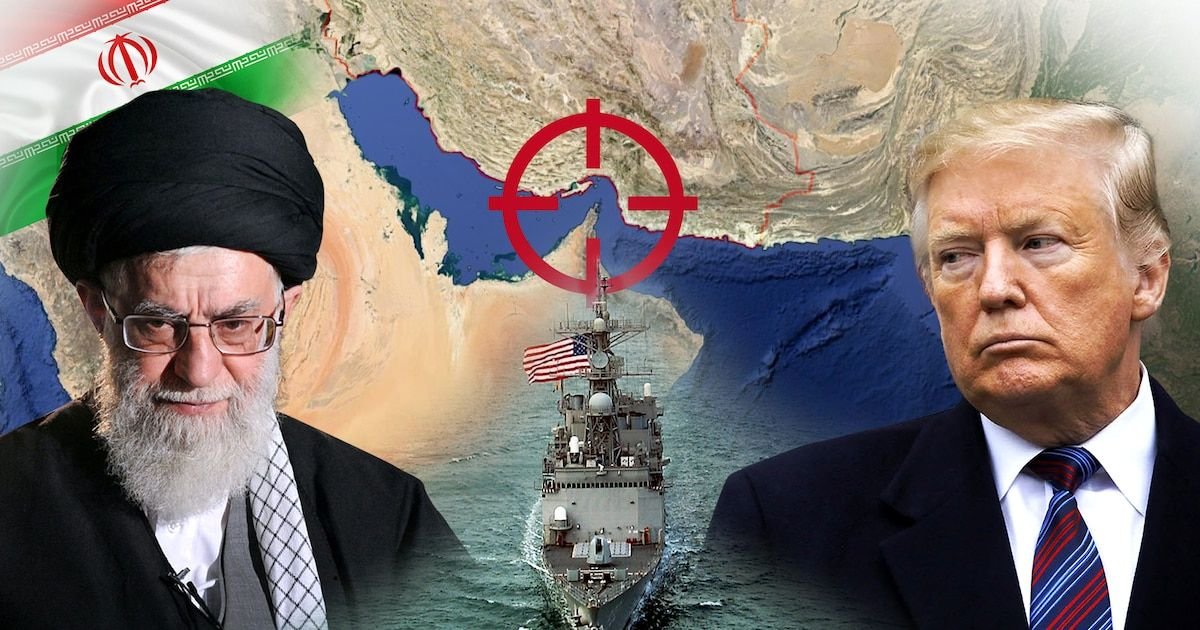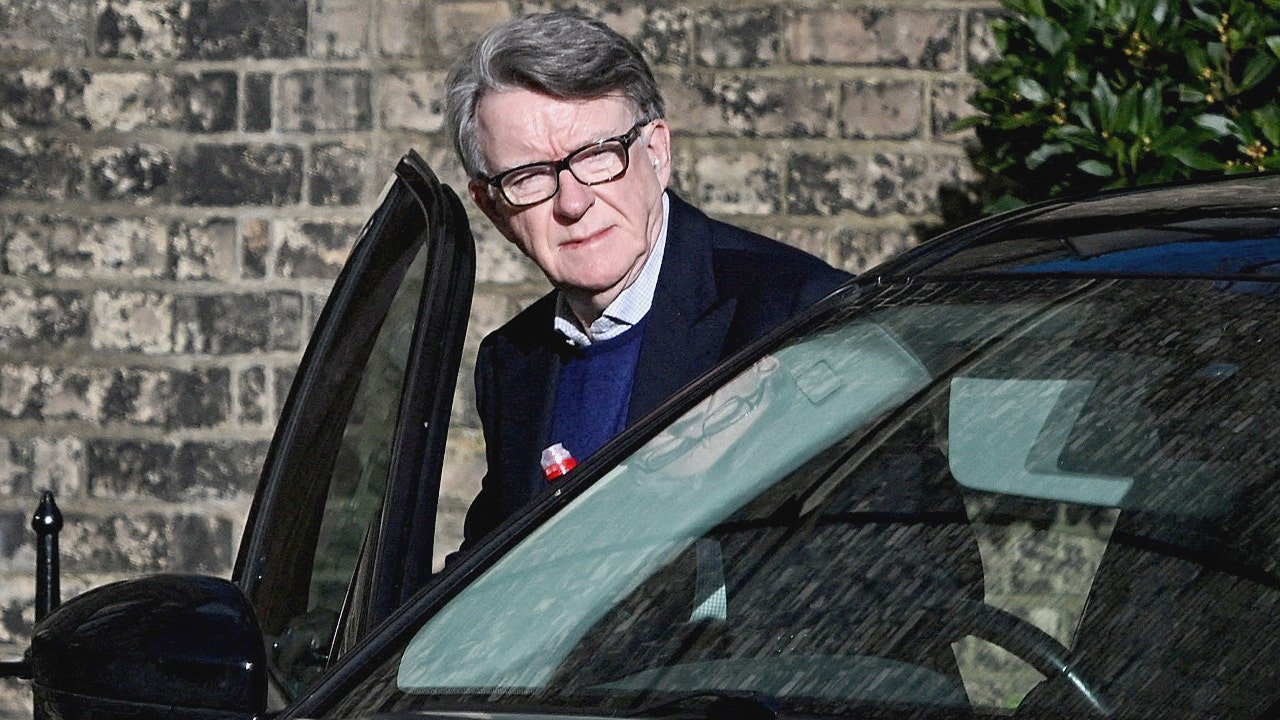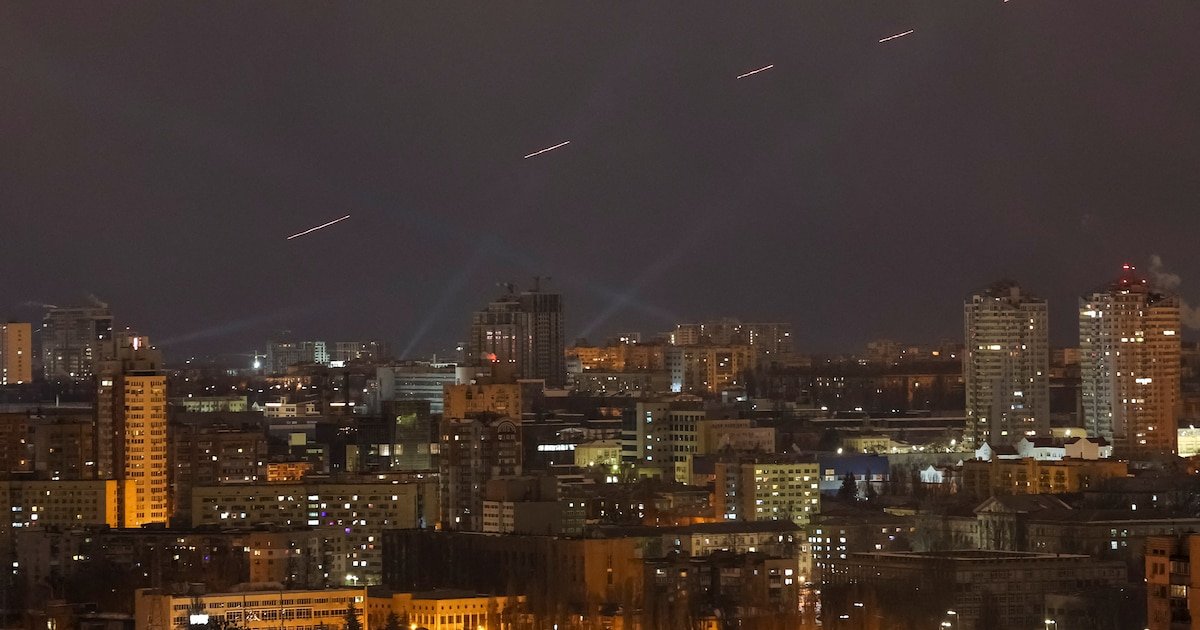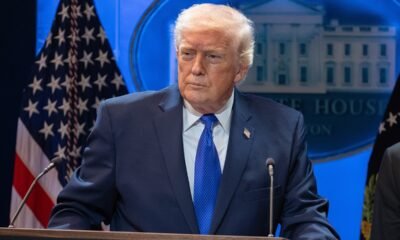INTERNACIONAL
Por qué es tan importante el Estrecho de Ormuz y cómo podría afectar su cierre al comercio mundial

La tensión entre Estados Unidos e Irán sigue escalando. En las últimas horas el Parlamento iraní aprobó una moción para cerrar el Estrecho de Ormuz, en respuesta a los recientes ataques aéreos estadounidenses contra tres instalaciones nucleares en territorio iraní.
Si esta propuesta recibe la aprobación final del líder supremo, Ali Khamenei, el impacto sería profundo: podría alterar los mercados energéticos globales, elevar los precios de los combustibles y afectar directamente la economía global.
¿Por qué es tan importante esta ruta marítima?
El Estrecho de Ormuz -ubicado entre las costas de Irán y Omán- es un paso marítimo estrecho pero estratégico que conecta el Golfo Pérsico con el Golfo de Omán y el mar Arábigo. Con 161 kilómetros de largo y solo 34 kilómetros de ancho en su punto más angosto, este corredor alberga dos canales de navegación de apenas 3 kilómetros cada uno, utilizados intensivamente por buques petroleros.
Según datos de la Administración de Información Energética de Estados Unidos (EIA, por sus siglas en inglés), en el primer trimestre fiscal de 2025 transitaron por allí casi 15 millones de barriles diarios de crudo y condensado, además de 8 millones de barriles de productos petroleros. Esto representa aproximadamente el 20% del comercio mundial de petróleo.
Asimismo, su proximidad a tierra firme —en particular a la costa iraní— deja a los buques expuestos a ataques con misiles o a la interceptación por lanchas patrulleras y helicópteros.

Aunque Irán no es el principal exportador a través del Estrecho —ese rol lo desempeña Arabia Saudita— su ubicación geográfica le otorga un control estratégico sobre la vía. Si se concreta el cierre, los mercados asiáticos serían los más afectados, pero Estados Unidos también sufriría consecuencias: cerca de 2 millones de barriles diarios de crudo con destino al país pasan por esa ruta.
Especialistas anticipan un alza abrupta de precios. “El cierre del Estrecho podría provocar un aumento inmediato del 30 al 50% en los precios del petróleo”, explicó Marko Papic, estratega jefe de BCA Research a Newsweek.
“El precio del crudo podría superar los 100 dólares por barril, aunque no está claro cuánto tiempo se mantendría ese nivel”, agregó.
Greg Kennedy, director del Economic Conflict and Competition Research Group en el King’s College London, advirtió que el efecto no será solo regional. “No es un acto limitado al Golfo, tiene repercusiones estratégicas globales”, señaló.

Por su parte, el analista Brian Krassenstein alertó que “si se cierra el Estrecho, el precio de la gasolina en Estados Unidos podría alcanzar entre 5 y 7 dólares por galón, dependiendo de la duración del bloqueo”.
Además del impacto directo en los consumidores, expertos prevén una ola de especulación, compras anticipadas y acaparamiento de reservas por parte de otros países. Esto podría generar una competencia feroz por el suministro restante, lo que elevaría aún más los costos.
La situación también podría desencadenar un efecto dominó en los mercados financieros.
Papic explicó que un shock petrolero de esta magnitud podría alterar el comportamiento de inversión de las empresas estadounidenses, impactar el gasto de capital y debilitar la confianza en la economía, afectando tanto al mercado laboral como al bursátil.
En medio de esta incertidumbre tras la medida adoptada por el Parlamento iraní, desde Washington, el vicepresidente estadounidense JD Vance advirtió que sería “un suicidio” económico para el propio régimen iraní: “Toda su economía pasa por el Estrecho de Ormuz. ¿Por qué harían eso? No creo que tenga ningún sentido”.
En esa línea se pronunció el secretario de Estado norteamericano, Marco Rubio, quien animó al régimen chino, aliado de Teherán, a interceder para evitar que la República Islámica bloquee el Estrecho.
“Animo al gobierno chino en Pekín a que les llame al respecto, porque dependen en gran medida del estrecho de Ormuz para su petróleo”, dijo en diálogo con Fox News. Y agregó: “Si lo hacen, será otro terrible error. Es un suicidio económico para ellos si lo hacen. Y tenemos opciones para afrontarlo, pero otros países también deberían tenerlo en cuenta. Perjudicaría a las economías de otros países mucho más que a la nuestra”.

Tras los ataques a las instalaciones nucleares de Isfahán, Fordow y Natanz, Irán evalúa sus opciones. Mientras tanto, decenas de petroleros intentan salir del Estrecho, según alertó el inversionista Spencer Hakimian en X. “Hay cerca de 50 grandes buques tratando de abandonar la zona. La industria espera un bloqueo inminente”, escribió.
El Ministerio de Transporte Marítimo de Grecia, por ejemplo, recomendó este domingo a los armadores del país que revisaran el uso del estrecho.
En respuesta, el presidente Donald Trump advirtió en su plataforma Truth Social: “CUALQUIER REPRESALIA DE IRÁN CONTRA ESTADOS UNIDOS SERÁ RESPONDIDA CON UNA FUERZA MUCHO MAYOR QUE LA PRESENCIADA ESTA NOCHE”.

Ante este escenario, no se descarta una respuesta militar de Estados Unidos y sus aliados para garantizar la seguridad de la navegación comercial, en un contexto donde los márgenes de error pueden ser catastróficos.
A pesar del voto parlamentario, la decisión final recae en el ayatolá Ali Khamenei.
Durante años, el régimen persa ha amenazado en reiteradas oportunidades con bloquear este paso como represalia ante las sanciones internacionales en su contra. Pese a esas amenazas, Teherán siempre ha evitado cerrar el Estrecho incluso en épocas de alto conflicto, como durante la guerra con Irak en los años 80.

A pesar de la importancia estratégica del Estrecho de Ormuz para el comercio global de crudo, varios países productores han tomado medidas para diversificar sus rutas de exportación y reducir su exposición a posibles bloqueos, según fuentes del sector.
Irán ha incorporado desde julio de 2021 una terminal petrolera en Jask, situada en el extremo oriental del Estrecho, que le da la posibilidad de enviar parte de su producción al extranjero sin transitar por la vía fluvial principal. Hacia finales del año pasado, los depósitos de esta nueva instalación comenzaron a almacenar crudo, dotando a Teherán de cierta flexibilidad operativa.
En el caso de Arabia Saudita, la opción de evitar el Estrecho de Ormuz y el sur del Mar Rojo queda sustanciada en un oleoducto de 1.200 kilómetros, que, atravesando el país, conecta regiones productoras con una terminal en el Mar Rojo para redirigir envíos hacia Europa.
Por su parte, Emiratos Árabes Unidos tiene la capacidad de enviar hasta 1,5 millones de barriles diarios a través de un conducto que transporta crudo desde sus campos petroleros hasta el puerto de Fujairah, sobre el golfo de Omán, al sur del Estrecho.

Irak, desde el cierre de su oleoducto hacia el Mediterráneo, depende por completo de las instalaciones portuarias de Basora para exportar su petróleo, precisando necesariamente la utilización del Estrecho para todos sus envíos.
Mientras tanto, Kuwait, Qatar y Baréin carecen de alternativas y transportan todo su crudo por vía marítima a través de Ormuz. La mayor fracción del petróleo circulando por este punto de paso está destinada al mercado asiático.
Sin embargo, la coyuntura actual es inédita, y la comunidad internacional observa con atención.
El creciente conflicto con Israel y Estados Unidos reaviva el temor de una interrupción del tráfico marítimo. Un eventual bloqueo del Estrecho representaría no solo una crisis energética, sino también un desafío geopolítico de gran escala. Las próximas horas y días serán clave para determinar si se impone la diplomacia o se agudiza la confrontación.
Middle East,Maritime,Transportation (TRBC level 2),MUSANDAM
INTERNACIONAL
Former Secret Service officials warn of low-tech threats facing Trump after latest Mar-a-Lago breach

NEWYou can now listen to Fox News articles!
A deadly confrontation at Mar-a-Lago, Florida, Sunday is the latest in a string of high-profile security incidents threatening President Donald Trump, as former Secret Service officials warn that low-tech, lone actors now pose one of the toughest challenges to presidential protection.
«It should be quite clear to all of us by now that Trump is the most threatened president in the history of the U.S.,» former Secret Service agent William «Bill» Gage told Fox News Digital Monday, pointing to multiple high-profile incidents in recent years. Unlike past presidencies, where threat levels often subsided over time, Gage said, «the longer he’s president, the more these attacks keep happening.»
Gage said the most difficult cases to prevent are often the least sophisticated. The recent incidents, he noted, were «super low-tech attacks by people with zero training,» using rudimentary weapons. «If you were standing behind them in line at Starbucks, you wouldn’t have given them a second look,» he said.
Gage said the threat landscape shifted over the course of his 12-year career as a Secret Service agent. When he joined the Secret Service in 2002, he said the agency was moving away from what he described as the traditional «lone gunman» model — figures like Lee Harvey Oswald, who assassinated John F. Kennedy, or international militants such as «Carlos the Jackal,» one of the world’s most wanted terrorists in the ‘70s and ’80s — and adapting to a post-9/11 world focused on coordinated terrorist networks like al Qaeda and later ISIS.
A deadly confrontation at Mar-a-Lago, Florida, Sunday is the latest in a string of high-profile security incidents involving President Donald Trump. (Marco Bello/Reuters)
«But if you look at Butler and the two incidents at Mar-a-Lago, those were super low-tech attacks,» Gage said. «The low-tech actors are the ones that tend to slip through the cracks.»
He also warned of a potential copycat effect when details of such incidents become public.
«If it were up to the Secret Service, they would never report any of these incidents ever,» Gage said, arguing that widespread coverage allows others to «study what happened» and attempt to refine it.
In today’s hyperconnected political climate, he said, that dynamic adds another layer of complexity for agents trying to stop the next threat before it materializes.
In the early hours of Sunday, a 21-year-old man identified as Austin Tucker Martin of North Carolina was shot and killed by U.S. Secret Service agents and a local sheriff’s deputy after entering the secure perimeter of Trump’s Mar-a-Lago resort in Palm Beach, Florida.
Authorities say Martin drove through the north gate carrying a shotgun and a gasoline can. After being ordered to drop both, he dropped the can but raised the shotgun toward officers, who fired and killed him at the scene. Trump and First lady Melania Trump were in Washington at the time.
The incident marked the third highly publicized security encounter involving Trump in less than two years.
In July 2024, a gunman opened fire at a campaign rally in Butler, Pennsylvania, grazing Trump’s ear and killing an attendee before being shot by a Secret Service sniper.
In September 2024, a man armed with a rifle was confronted by agents near Trump’s golf course while he was playing; that suspect was later convicted on attempted assassination charges.
While the incidents have drawn intense attention, former Deputy Assistant Director Don Mihalek said the latest Mar-a-Lago intrusion does not necessarily signal a breakdown in protective systems.
«He got through an exterior gate of an active club,» Mihalek told Fox News Digital. «This wasn’t someone reaching the president’s residence.»
Agents confronted the suspect within seconds, he said, describing the rapid response as evidence that overlapping security layers functioned as designed.
Mihalek said presidential protection relies on multiple rings of security because outer perimeters at properties like Mar-a-Lago cannot be sealed in the same way as the White House.
«If he ended up in the president’s house on Mar-a-Lago, that might be a different conversation,» he said.
He also cautioned against viewing recent incidents in isolation, noting that presidents routinely face roughly 2,000 threats per year, most of which are mitigated before the public ever becomes aware of them.
«These just happen to be very public instances,» Mihalek said, arguing that the social media era amplifies perceptions of escalation.

Then-Republican presidential candidate Donald Trump is whisked away by Secret Service after shots rang out at a campaign rally at Butler Farm Show Inc. July 13, 2024, in Butler, Pennsylvania. (Jeff Swensen/Getty Images)
GUNFIRE, ARSON AND VANDALISM: TRACKING POLITICAL VIOLENCE IN AMERICA
Mihalek pointed to the 2024 rally shooting in Butler, Pennsylvania, as an example of how early intervention can be decisive, noting that local law enforcement had reportedly identified the suspect prior to the attack.
«If somebody had walked up and said, ‘Hey, who are you?’ we wouldn’t be talking about Butler,» he said.
As Trump prepares to address Congress at the State of the Union, both former officials said the security posture at the Capitol is unlikely to change in response to the weekend incident.
The annual address is designated a National Special Security Event — the highest level of federal security planning — triggering coordination among the Secret Service, U.S. Capitol Police, FBI, War Department and other agencies. The designation allows for expanded perimeter controls, airspace restrictions and continuity-of-government planning.

Barricades go up around the Capitol ahead of the State of the Union. (Kylie Cooper/Reuters)
CLICK HERE TO DOWNLOAD THE FOX NEWS APP
Gage, who previously led advance planning for State of the Union addresses, said the event operates under a well-established security «blueprint» built to account for worst-case scenarios. «There’s really no way to increase it anymore,» he said.
Both former officials said the defining challenge for presidential protection today is unpredictability: individuals with minimal training, rudimentary weapons and the ability to find reinforcement online. Unlike organized extremist networks, such actors may leave few detectable signals before acting.
homeland security,national security,donald trump
INTERNACIONAL
UK government to unseal former ambassador Mandelson documents tied to Jeffrey Epstein probe

NEWYou can now listen to Fox News articles!
The UK government is set to unseal a first batch of key documents relating to Peter Mandelson’s appointment as ambassador to the U.S., MPs were told Monday.
The disclosure, set for «early March,» follows a Commons motion ordering the release of files related to Mandelson’s vetting for the post and comes in the wake of his arrest on suspicion of misconduct in public office.
«The government expects to be able to publish the first tranche of documents very shortly, in early March,» Darren Jones, chief secretary to Prime Minister Keir Starmer, told the House of Commons.
«I should, however, inform the House that it remains the case that a subset of this first tranche of documents is currently subject to the ongoing Metropolitan Police investigation,» he said.
British Prime Minister Keir Starmer, right, talks with Britain’s ambassador to the United States Peter Mandelson during a welcome reception at the ambassador’s residence in Washington, on Feb. 26, 2025. (Carl Court/Pool Photo via AP)
Jones added that «a small portion of that material engages matters of national security or international relations» and would be handled through the Intelligence and Security Committee, in line with the will of the House.
As previously reported by Fox News Digital, a Metropolitan Police spokesperson confirmed in a statement Monday that officers had arrested a 72-year-old man at an address in Camden and took him to a London police station for questioning.
The arrest follows revelations about Mandelson’s links to convicted sex offender Jeffrey Epstein and comes days after former Prince Andrew was detained.
The investigation relates to allegations that Mandelson shared confidential government information with Epstein while serving as business secretary.
DOJ PUBLISHES TROVE OF EPSTEIN FILES, SAYS MORE TO COME AFTER FRIDAY DEADLINE

Former British Ambassador to the U.S. Peter Mandelson enters a vehicle outside a reported residence, after police launched a misconduct in public office investigation. (Reuters)
Police had opened a criminal inquiry after the government passed on communications between the former ambassador and the disgraced financier.
Emails released by the U.S. Department of Justice also appeared to show Mandelson sharing market-sensitive information with Epstein during the 2008 financial crisis.
Mandelson has denied wrongdoing and said he does not recall the alleged disclosures and apologized to Epstein’s victims for maintaining contact with him after his conviction.
On Feb. 4, Starmer told the Commons: «I’m as angry as anyone about what Mandelson has been up to. The disclosures … are utterly shocking and appalling. He has betrayed our country. He has lied repeatedly. He is responsible for a litany of deceit.»
UK TO RELEASE FILES RELATED TO FORMER AMBASSADOR’S JEFFREY EPSTEIN TIES

Jeffrey Epstein was found dead in federal custody in 2019. (New York State Sex Offender Registry via AP, File)
Starmer later said that if he had known then what he knows now, Mandelson «would never have been anywhere near government.»
Mandelson, an architect of New Labour, was appointed U.S. ambassador before being dismissed in September 2025 as scrutiny over his links to Epstein intensified.
He resigned from the Labour Party and stepped down from the House of Lords.
CLICK HERE TO DOWNLOAD THE FOX NEWS APP
As U.S. ambassador, Mandelson scored an early victory by ensuring Britain was the first country to agree to a deal with the U.S. to lower some of President Donald Trump’s tariffs, but was fired a few months later.
Starmer has also faced calls to step down over Mandelson’s appointment, Reuters reported.
uk politics,investigations,appointments,jeffrey epstein
INTERNACIONAL
Hace cuatro años comenzaba la criminal invasión de Rusia a Ucrania: jamás abandonemos a Kiev

El “Triángulo” es el nombre que recibe el distrito gubernamental de la capital ucraniana, el objetivo primario de los asaltos rusos contra Kiev durante las dos primeras semanas de la operación a gran escala desencadenada por Vladímir Putin el 24 de febrero de 2022.
Eran las 04:15 de aquel día, cuando en un anuncio televisivo grabado tres días antes, el presidente de la Federación Rusa declaró la guerra a Ucrania. La agresión comenzó entre las 04:45 y las 05:00 con potentes interferencias de las telecomunicaciones, los sistemas de radar de los invadidos y una intensa actividad de acoso por parte de drones que simulaban ser aviones rusos. Además, las Fuerzas Armadas de la Federación Rusa desencadenaron también ciberataques a gran escala contra las infraestructuras del Gobierno ucraniano, con las que consiguieron interrumpir redes de alto voltaje y subestaciones eléctricas por todo el país.
En consecuencia, el sistema de comunicaciones de las Fuerzas Armadas Ucranianas quedó interrumpido y cortados todos los enlaces entre el Estado Mayor Conjunto, los Comandos Operacionales y las Brigadas, durante varios días.
Al mismo tiempo, numerosas oleadas de misiles balísticos y de crucero impactaron contra aeropuertos civiles y militares e instalaciones seleccionadas de defensa antiaérea y, aunque algunas Bases Aéreas, casi todos los grandes aeropuertos y varios de los emplazamientos de la defensa antiaérea resultaron severamente alcanzados, las bajas que causaron a la Fuerza Aérea Ucraniana fueron mínimas gracias a que en el último minuto habían evacuado sus aviones y helicópteros a aeródromos situados en el sudoeste del país.
Aún se estaban desarrollando los primeros ataques cuando el Ministerio de Defensa de Moscú puso en marcha su “golpe”, una operación cuyo objetivo era derribar al Gobierno ucraniano y así decapitar y paralizar el liderazgo político y militar del país, justo al inicio de la guerra. A causa del favoritismo de Putin, esta tarea se encargó a una mezcla de unidades selectas de las Fuerzas Aerotransportadas Rusas, Compañías Militares privadas y, en especial, la poderosa Fuerza Aeroespacial. El resultado fue un plan complejo, engorroso, lento en su ejecución y con tropas demasiado escasas para una operación de este alcance e importancia. Primer gran error del Alto Mando ruso, de los muchos registrados por Moscú a lo largo de estos cuatro largos años.
Es importante mencionar que la acción comenzó días antes del ataque, con la infiltración de numerosos equipos y mercenarios en el centro de Kiev, con el objetivo de capturar y eliminar al presidente Volodímir Zelensky, a los miembros de su Gabinete e incluso a su familia. De todas maneras, si esta misión fracasaba, se encargó a tres grupos tácticos de “elite” que en vez de participar en el asalto a Kiev, aseguraran aeropuertos fuera de la ciudad, para que sirvieran como cabezas de puente para la llegada de más tropas aerotransportadas, como apoyo a las operaciones de fuerzas especiales.
No muy lejos y por detrás, dos Grandes Unidades de Batalla (Guardia Nacional, unidad militar para uso en el interior del país que depende directamente del presidente Putin), avanzarían por carretera desde Bielorrusia para asegurar algunas infraestructuras cruciales en torno a la capital y esperar a la llegada de las unidades mecanizadas que, a su vez, completarían la conquista del centro de Kiev y su aislamiento del oeste y el sur del país.
No pudo concretarse el paseo que imaginaba Putin de 48 horas y la entrada triunfal en la capital de las tropas del nuevo Zar moscovita. Han pasado cuatro años desde esa agonía que continúa hoy implacablemente, sin solución de continuidad.
Al presidente Zelensky, héroe indiscutido de este nuevo siglo, el mundo libre le pide que continúe con todas sus fuerzas y profundas convicciones democráticas, en esta cruzada libertadora. Miles de millones de personas apoyamos esta causa como propia en todo el hemisferio, recordando que la inmensa mayoría de los países de la Unión Europea, el Reino Unido de Gran Bretaña e Irlanda del Norte y Canadá, entre otras naciones centrales, están demostrando inequívocamente que los principios nunca se negocian y que la democracia y libertad, no se entregan jamás ni son moneda de cambio.
La plena vigencia del Multilateralismo como doctrina esencial de las relaciones internacionales, que se sustenta en la globalización y la interdependencia entre naciones, fue y continúa siendo el antídoto más eficaz contra los gobiernos totalitarios.
Su plena vigencia desde 1945 y su consolidación con la caída del Muro de Berlín en 1989, demuestran que la solución de controversias entre Estados no es una alquimia sino una demostración que, aunque existan asimetrías enormes especialmente desde el punto de vista del instrumento militar, la diplomacia a través de la persuasión, el consenso y fundamentalmente la disuasión desde una posición de fuerza indiscutible, son los elementos que hacen posible lograr una paz digna.
De lo contrario, no es paz, es capitulación, rendición incondicional y Ucrania ha demostrado con hidalguía superlativa, que no existe Plan “B”. Definitivamente Putin debe devolver todos los territorios invadidos. Se lo exige la comunidad democrática internacional, con racional, equilibrada y, fundamentalmente, profunda determinación. A cuatro años del inicio de esta pesadilla, es imperioso que todos los países actúen ya con renovada firmeza y no se permita que el tiempo sea cómplice de los invasores.
José Ingenieros decía con manifiesta claridad ejemplificadora: “Los que aspiran a ser águilas, deben volar alto y mirar lejos porque aquellos que se resignan a arrastrarse como gusanos, pierden el derecho a protestar si los aplastan”.
Europe,Military Conflicts,KYIV

 ECONOMIA3 días ago
ECONOMIA3 días agoVillarruel cuestionó la apertura de importaciones: «Sin industria, se pasa a depender de China»

 POLITICA2 días ago
POLITICA2 días ago“Ahora es la hora de jugarse”: el mensaje de Patricia Bullrich a los empresarios tras aprobarse la reforma laboral

 ECONOMIA2 días ago
ECONOMIA2 días agoSegún un especialista, el precio de la carne se mantendrá alto “entre dos y tres años”




























